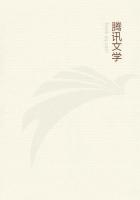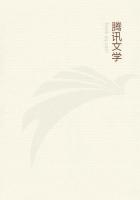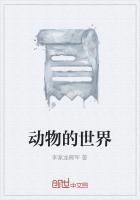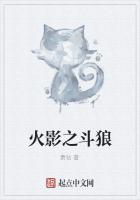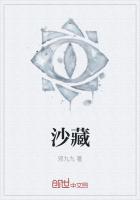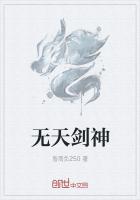"Orson's first appearance at court was in the figure of a rough truth, causing the Maids of Honour, accustomed to Tapestry Adams, astonishment and terror," said De Craye. That he might not be left out of the sprightly play, Sir Willoughby levelled a lance at the quintain, smiling on Laetitia: "In fine, caricature is rough truth."
She said, "Is one end of it, and realistic directness is the other."
He bowed. "The palm is yours."
Mrs. Mountstuart admired herself as each one trotted forth in turn characteristically, with one exception unaware of the aid which was being rendered to a distressed damsel wretchedly incapable of decent hypocrisy. Her intrepid lead had shown her hand to the colonel and drawn the enemy at a blow.
Sir Willoughby's "in fine", however, did not please her: still less did his lackadaisical Lothario-like bowing and smiling to Miss Dale: and he perceived it and was hurt. For how, carrying his tremendous load, was he to compete with these unhandicapped men in the game of nonsense she had such a fondness for starting at a table? He was further annoyed to hear Miss Eleanor and Miss Isabel Patterne agree together that "caricature" was the final word of the definition. Relatives should know better than to deliver these awards to us in public.
"Well?" quoth Lady Busshe, expressive of stupefaction at the strange dust she had raised.
"Are they on view, Miss Middleton?" inquired Lady Culmer.
"There's a regiment of us on view and ready for inspection."
Colonel De Craye bowed to her, but she would not be foiled.
"Miss Middleton's admirers are always on view." said he.
"Are they to be seen?" said Lady Busshe.
Clara made her face a question, with a laudable smoothness.
"The wedding-presents," Lady Culmer explained.
"No."
"Otherwise, my dear, we are in danger of duplicating and triplicating and quadruplicating, not at all to the satisfaction of the bride."
"But there's a worse danger to encounter in the 'on view', my lady," said De Craye; "and that's the magnetic attraction a display of wedding-presents is sure to have for the ineffable burglar, who must have a nuptial soul in him, for wherever there's that collection on view, he's never a league off. And 'tis said he knows a lady's dressing-case presented to her on the occasion fifteen years after the event."
"As many as fifteen?" said Mrs. Mountstuart.
"By computation of the police. And if the presents are on view, dogs are of no use, nor bolts, nor bars:--he's worse than Cupid.
The only protection to be found, singular as it may be thought, is in a couple of bottles of the oldest Jamaica rum in the British isles."
"Rum?" cried Lady Busshe.
"The liquor of the Royal Navy, my lady. And with your permission, I'll relate the tale in proof of it. I had a friend engaged to a young lady, niece of an old sea-captain of the old school, the Benbow school, the wooden leg and pigtail school; a perfectly salt old gentleman with a pickled tongue, and a dash of brine in every deed he committed. He looked rolled over to you by the last wave on the shore, sparkling: he was Neptune's own for humour. And when his present to the bride was opened, sure enough there lay a couple of bottles of the oldest Jamaica rum in the British Isles, born before himself, and his father to boot. 'Tis a fabulous spirit I beg you to believe in, my lady, the sole merit of the story being its portentous veracity. The bottles were tied to make them appear twins, as they both had the same claim to seniority.
And there was a label on them, telling their great age, to maintain their identity. They were in truth a pair of patriarchal bottles rivalling many of the biggest houses in the kingdom for antiquity. They would have made the donkey that stood between the two bundles of hay look at them with obliquity: supposing him to have, for an animal, a rum taste, and a turn for hilarity.
Wonderful old bottles! So, on the label, just over the date, was written large: UNCLE BENJAMIN'S WEDDING PRESENT TO HIS NIECE BESSY. Poor Bessy shed tears of disappointment and indignation enough to float the old gentleman on his native element, ship and all. She vowed it was done curmudgeonly to vex her, because her uncle hated wedding-presents and had grunted at the exhibition of cups and saucers, and this and that beautiful service, and epergnes and inkstands, mirrors, knives and forks, dressing-cases, and the whole mighty category. She protested, she flung herself about, she declared those two ugly bottles should not join the exhibition in the dining-room, where it was laid out for days, and the family ate their meals where they could, on the walls, like flies. But there was also Uncle Benjamin's legacy on view, in the distance, so it was ruled against her that the bottles should have their place. And one fine morning down came the family after a fearful row of the domestics; shouting, screaming, cries for the police, and murder topping all. What did they see? They saw two prodigious burglars extended along the floor, each with one of the twin bottles in his hand, and a remainder of the horror of the midnight hanging about his person like a blown fog, sufficient to frighten them whilst they kicked the rascals entirely intoxicated.
Never was wilder disorder of wedding-presents, and not one lost!--owing, you'll own, to Uncle Benjy's two bottles of ancient Jamaica rum."
Colonel De Craye concluded with an asseveration of the truth of the story.
"A most provident, far-sighted old sea-captain!" exclaimed Mrs.
Mountstuart, laughing at Lady Busshe and Lady Culmer. These ladies chimed in with her gingerly.
"And have you many more clever stories, Colonel De Craye?" said Lady Busshe.
"Ah! my lady, when the tree begins to count its gold 'tis nigh upon bankruptcy."
"Poetic!" ejaculated Lady Culmer, spying at Miss Middleton's rippled countenance, and noting that she and Sir Willoughby had not interchanged word or look.


